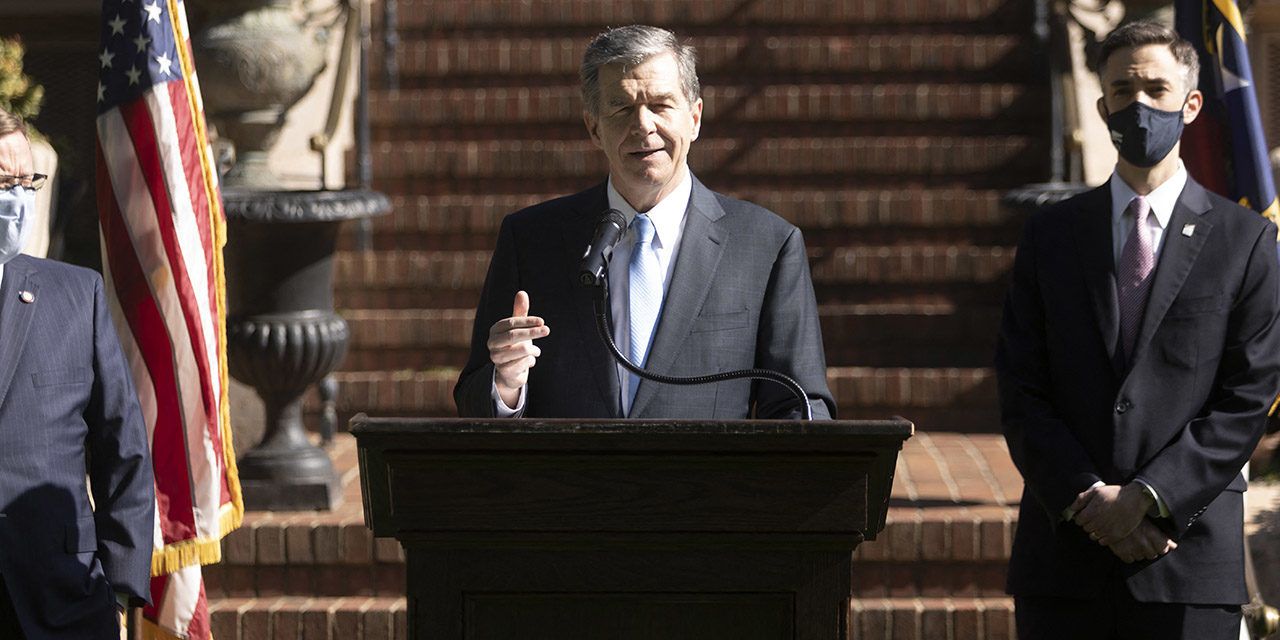The North Carolina legislature recently passed HB 453, titled “Human Life Nondiscrimination Act/No Eugenics.” The bill would have banned abortions based on race, sex or a fetal diagnosis of Down syndrome. Although passing the Senate with a vote of 27-20, and the House by margin of 67-42, Governor Roy Cooper vetoed the bill.
“This bill gives the government control over what happens and what is said in the exam room between a woman and her doctor at a time she faces one of the most difficult decisions of her life. This bill is unconstitutional and it damages the doctor-patient relationship with an unprecedented government intrusion,” Cooper said in his veto message.
The bill, which now goes back to the legislature for a potential veto override, is straightforward:
“[N]o person shall perform or attempt to perform an abortion upon a woman in this State, unless the physician scheduled to perform or attempt to perform the abortion has confirmed before the abortion that the woman is not seeking an abortion because of any of the following:
– The actual or presumed race or racial makeup of the unborn child.
– The sex of the unborn child.
– The presence or presumed presence of Down syndrome.”
Lifenews reports that 12 states protect unborn children diagnosed with Down syndrome. Several of those have seen those laws struck down in the courts, including Arkansas. The Arkansas case has gone all the way to the U.S. Supreme Court, which has been asked to accept the state’s appeal to overturn the 8th U.S. Circuit Court of Appeals which struck down Arkansas’ law.
In North Carolina’s case, the legislature made an intentional effort in the bill’s preamble to advocate for the right of preborn babies to be free from discrimination.
“Whereas, all human beings, from conception through death, have intrinsic dignity and worth. Human dignity includes the inherent right not to suffer discrimination on the basis of innate characteristics, such as a human being’s race, sex, or genetic characteristic, including any genetic abnormalities,” the bill reads.
The preamble went on to note all the federal laws that prohibit discrimination based on race, sex or disability, including the 1964 Civil Rights Act, the Rehabilitation Act of 1973, and the Americans With Disabilities Amendments Act of 2010.
Yet despite these federal protections, and numerous state laws that prohibit the same, the legislature pointed out that “unborn human beings are often discriminated against and deprived of life.”
Authors of the bill hope that by reminding their fellow legislators that abortions based on these characteristics is a form of discrimination that would be prohibited if these babies were outside the womb, more hearts and minds will be changed.
And equating such abortions with eugenics is not a stretch, either. Justice Clarence Thomas warned in 2019 that “The use of abortion to achieve eugenic goals is not merely hypothetical.” Even though he joined the rest of the justices in declining to address a similar Indiana law at that time, he pointedly said, “Although the Court declines to wade into these issues today, we cannot avoid them forever.”
That day of reckoning is fast approaching. Pray that the nation’s highest court recognizes the value of preborn life and upholds these types of laws protecting against discrimination. And pray that the North Carolina legislature is able to override the governor’s veto.
Photo from TNS/ABACA/REUTERS






